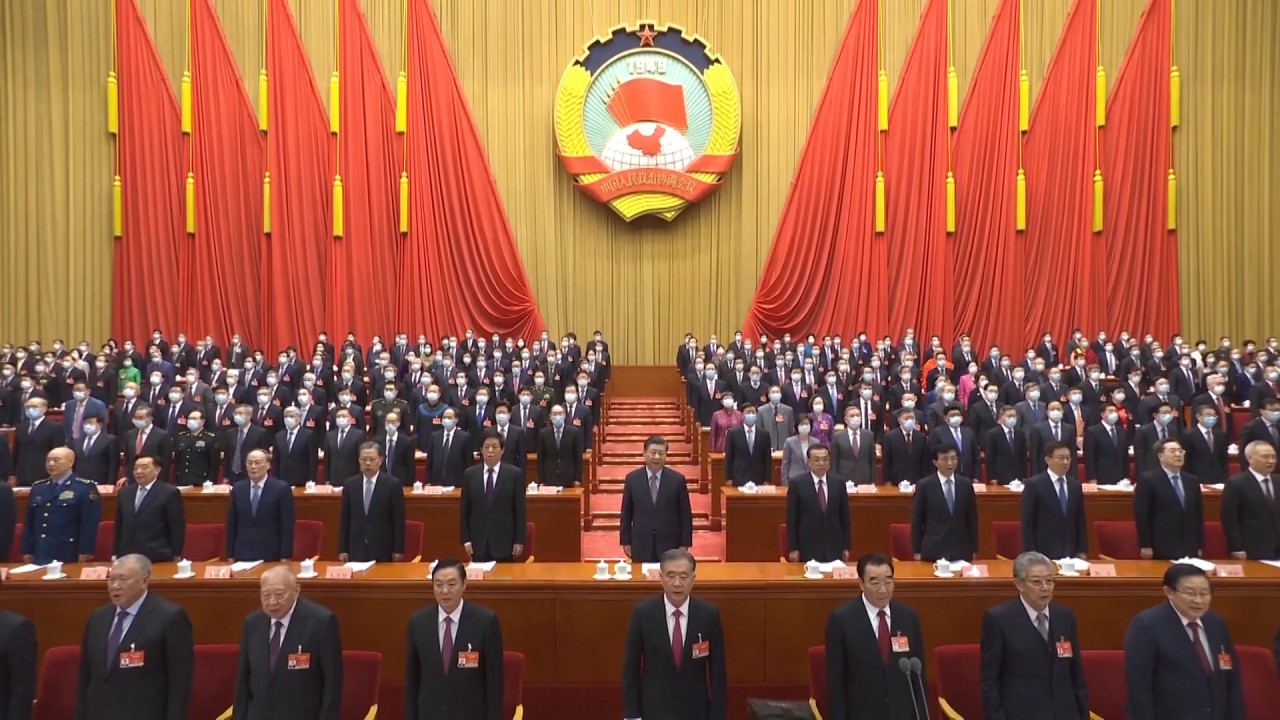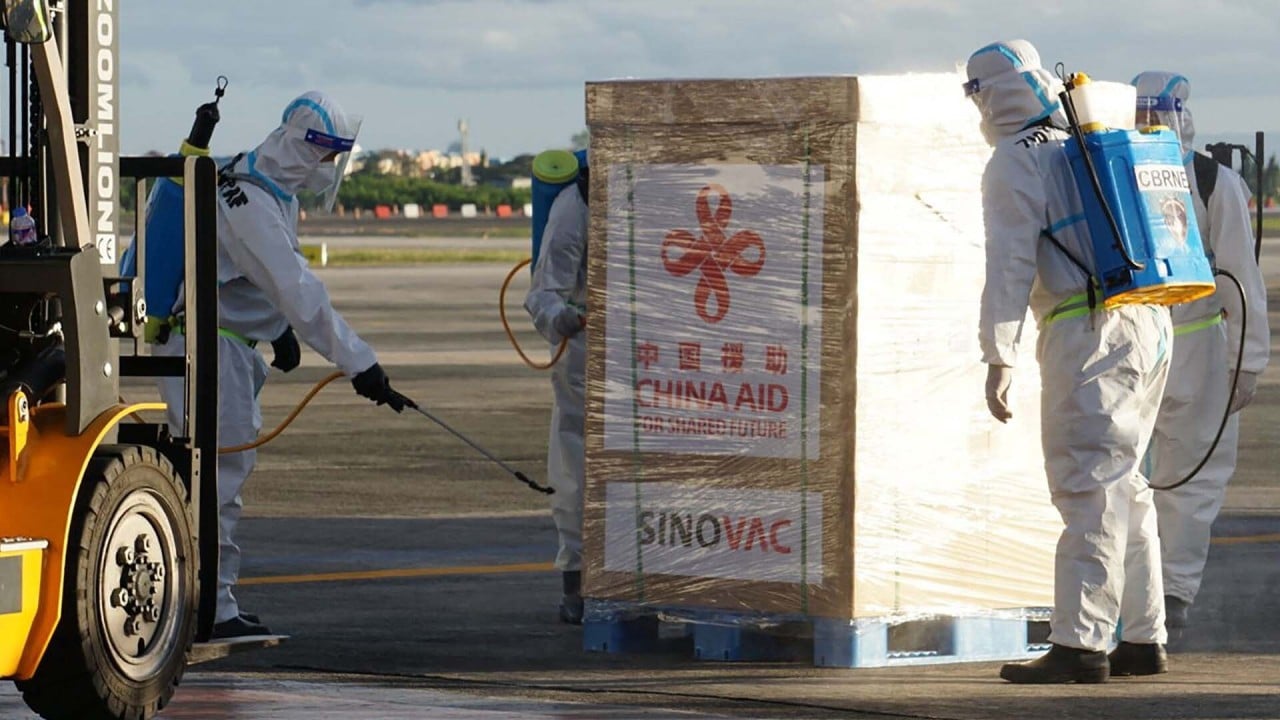
Beijing says disagreements are ‘normal’ and US and China can coexist as global powers
- NPC spokesman says confrontation has hurt the interests of both countries and they should cooperate in areas like climate change and the pandemic
- Zhang Yesui also insisted China is transparent about its military spending and efforts to strengthen defence ‘do not target or threaten any country’
China and the United States can coexist as major global powers but they must learn to respect each other and not go down the wrong path of confrontation and rivalry, the spokesman for the Chinese legislature said on Thursday.
“China and the United States may have disagreements, it is normal. But cutting off supplies and decoupling has hurt the two countries without bringing benefits. Confrontation has hurt each other’s interests,” Zhang said. “There are many areas of mutual interest such as climate change and the Covid-19 response, promoting global economic recovery and maintaining regional peace and stability.”
He said China’s US policies were consistent and it had always adhered to the principle of no confrontation, though he reiterated that Beijing would defend its interests and sovereignty.
Biden in February said he had made clear to Xi in the call that there would be “repercussions” for China’s human rights abuses. Beijing has long rejected accusations of human rights violations, and Xi reportedly told Biden that issues relating to Xinjiang, Hong Kong and Taiwan were “China’s internal affairs and concern China’s sovereignty and territorial integrity”.

On Thursday, Zhang also said China was transparent about its defence budget.
“Maintaining an appropriate and steady increase of defence spending is needed to safeguard our sovereignty, security, and development interests, fulfil China’s international responsibilities and obligations, and promote the transformation of national defence with Chinese features,” he said.
Zhang did not give any specifics of China’s defence spending – as other NPC spokesmen have done in previous years – but said a country’s defence policy, rather than its defence budget, should be used to determine whether it posed a threat to others or not.
“Our defence policy is defensive in nature, the efforts to strengthen our national defence do not target or threaten any country,” he said.
Five things you need to know about China’s biggest political gatherings
In 2019, China’s defence budget reached 1.2 trillion yuan (US$185 billion), the second highest military spending in the world after the US. But the figure did not account for all of China’s defence spending, according to a January report by military affairs think tank the Stockholm International Peace Research Institute. It put China’s real defence budget at 1.66 trillion yuan if spending in areas like its coastguard and paramilitary police was included.
Zhang’s call for peaceful coexistence came after US Secretary of State Antony Blinken on Wednesday said China was “the biggest geopolitical challenge that the United States faced in the 21st century”.

02:01
Annual meeting of China's top political advisory body opens
Zhang also said China had no geopolitical agenda when it provided Covid-19 vaccines to developing countries. He said China had provided vaccines to more than 60 countries, most of them developing nations, and it was in discussion with another 40 countries to supply vaccines.
“In the face of the pandemic, nothing matters more than people’s lives,” Zhang said. “China initiated international cooperation to fight the pandemic not for geopolitical purposes, and it did not come with any political strings attached,” the spokesman said. “We hope more countries can provide vaccines to developing countries.”

03:05
China-made coronavirus vaccines widely distributed despite efficacy concerns
China has stepped up its calls to work with the US in vaccine research and development as it seeks common ground to ease tensions between the two powers. George Gao Fu, director of the Chinese Centre for Disease and Control and Prevention, said at a webinar earlier this week the two countries should cooperate to fight the pandemic.
However, the Biden administration has reportedly been in talks with allies in the Quad security grouping – Japan, India and Australia – to distribute Covid-19 vaccines to Asian countries in an effort to counter China’s influence.
China has sent vaccines to countries including Bolivia, Zimbabwe, Equatorial Guinea, Iraq, Pakistan, Cambodia and Laos in recent weeks. Analysts say it has been engaging in vaccine diplomacy, a label China has resisted.
Additional reporting by Eduardo Baptista

